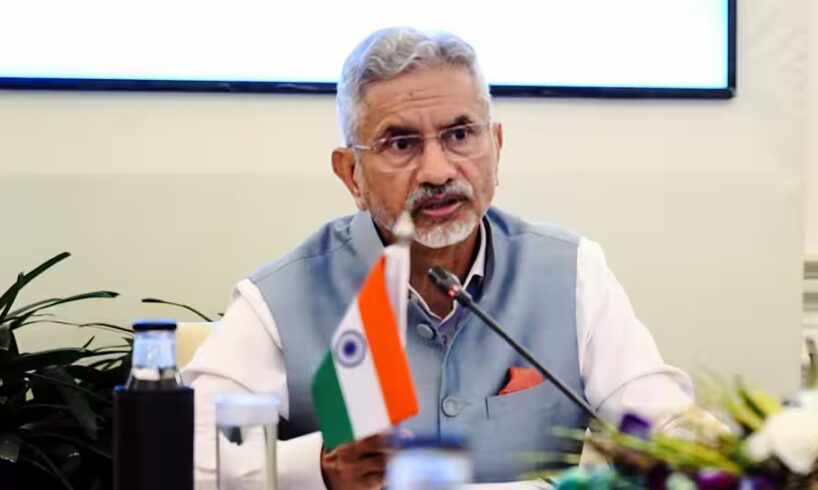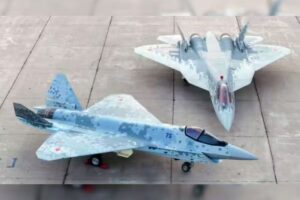
External Affairs Minister Dr S Jaishankar on Monday defended India’s decision to maintain strategic autonomy. Addressing the inaugural Aravalli Summit at Jawaharlal Nehru University (JNU), marking the 70th anniversary of the School of International Studies (SIS), Jaishankar said that India did not ally with anybody even it was much weaker and today, there is ‘absolutely no reason to do it’. He said that the behaviour of some countries has made the case for strategic autonomy stronger for India.
“Please tell me which country you would like to join up with and put our future in their hands. I can’t think of anybody. Let me know if you do,” Jaishankar said, responding to a question. The two-day international conference, themed ‘India and the World Order: Preparing for 2047’, is being held on October 6 and 7 in New Delhi. Organised in collaboration with the Ministry of External Affairs and the Chintan Research Foundation, the summit focuses on India’s evolving global role as it approaches its centenary of independence.
Emphasising India’s foreign policy approach, Jaishankar defended New Delhi’s doctrine of strategic autonomy, saying, “Imagine if you were not today adopting strategic autonomy. Please tell me which country in the world would you like to join up with and put your future in their hands?…The more turbulent and unpredictable the global order becomes, the stronger the case for multi-alignment or strategic autonomy. It actually becomes stronger, not weaker.”
Add Zee News as a Preferred Source
Dr Jaishankar called India’s rise “an exceptional journey unfolding in a turbulent global era.” In his address, Jaishankar reflected on his long association with JNU and SIS, recalling his academic years and the university’s influence on his diplomatic career. “He recalls how studying international relations at JNU has helped him during his career,” he said, acknowledging his teachers and peers. He noted that the School of International Studies “started at a stage of our history when we began re-engaging the world after our independence,” and urged the institution to “shift gears and undertake the task of addressing the agenda of Viksit Bharat.”
Highlighting the scale of geopolitical change, Jaishankar observed, “It appears that it is India’s destiny that its rise take place in an exceptionally turbulent era. When I look back at my research on the evolution of a global order in the aftermath of a World War, it seems almost glacial in comparison to the mega changes that we are witnessing today.”
He detailed how major structural shifts are shaping the world, stating, “A third of global manufacturing has moved to a single geography, with attendant consequences for supply chains. There is rising anti-globalization sentiment in many societies. Trade calculations are being overturned by tariff volatility. The global energy scenario has changed profoundly with the US becoming a major fossil fuel exporter and China a key renewable one.”
On the evolution of warfare and technology, he remarked, “The quality of weaponry and the nature of war itself have been transformed, making it more stand-off, more impactful and definitely more risk-prone.” He cautioned that these developments carry significant strategic consequences, noting, “We see an erosion in sovereignty facilitated by tech penetration and manipulation. Global rules and regimes are being revisited and, at times, even discarded. Cost is no longer the defining criterion for economic transactions; ownership and security are equally so.”
Expanding on India’s global positioning, Jaishankar said that the world was witnessing “more competition and less compacts,” with “the needle shifting towards an intersection of interests and away from the promise of cooperation.” He underlined the need for India to keep advancing despite volatility. “While the majority are struggling to cope or busy defending their interests, India has to strategize and continue rising amidst such volatility,” he said.
Calling for renewed academic engagement, he urged scholars and policymakers to “create the ideas, concepts, terminology, explanations and narratives for the journey towards 2047,” noting that institutions like SIS would play a central role in shaping that intellectual foundation. Concluding his remarks, Jaishankar said he was confident that SIS would continue to contribute meaningfully to India’s global vision. “I have every confidence that it will grow from strength to strength and live up to the promise of its very distinguished history,” he said. (With ANI inputs)





